Exploring the world of travel often brings us face-to-face with complex and sensitive topics. If you’re curious about destinations that cater to adult entertainment, understanding the legal landscape is essential. SIXT.VN provides resources to help you make informed and responsible travel decisions, especially when considering destinations known for adult entertainment. Remember, ethical travel is about respecting local laws and cultures.
1. Understanding the Legal Landscape of Sex Tourism
What countries have legalized prostitution and how does this impact travelers?
The legality of prostitution varies significantly around the world, reflecting diverse cultural, social, and political perspectives. According to research from the United Nations Population Fund (UNFPA) in 2022, understanding these legal frameworks is crucial for travelers. While some countries have fully legalized and regulated prostitution, others have adopted a more nuanced approach, decriminalizing certain aspects while maintaining restrictions on related activities like brothel ownership or solicitation. For example, in countries like Germany and the Netherlands, prostitution is legal and regulated, with specific laws in place to protect sex workers and ensure public health. Conversely, in countries like the United States and Australia, the legal status of prostitution can vary by state or territory.
This patchwork of laws can create confusion for travelers, making it essential to research the specific regulations of your destination before you go. Furthermore, even in countries where prostitution is legal, there may be specific rules regarding where it can take place and how it can be advertised. Understanding these local laws is not only important for staying out of trouble but also for ensuring that you are engaging in ethical and responsible travel practices.
2. Countries with Legal Prostitution: A Detailed Overview
Which countries have legalized prostitution in 2024?
Here’s a detailed look at countries where prostitution is legal, along with key notes on their specific regulations.
| Country | Legality | Notes |
|---|---|---|
| New Zealand | Legal | Prostitution, brothels, and solicitation are legal. |
| Australia | Legal/Illegal | Prostitution is legal in some parts of Australia. |
| Austria | Legal | Prostitution is completely legal in this country. |
| Bangladesh | Legal/Illegal | Prostitution is legal, but various provisions of different laws prohibit solicitation and keeping unlicensed brothels. |
| Belgium | Legal/Illegal | Prostitution is legal, but organizing prostitution and other forms of pimping are illegal. |
| Brazil | Legal/Illegal | Prostitution is legal, but brothels and solicitation are illegal. |
| Canada | Legal/Illegal | The selling of sex is legal, but the purchasing of sex is illegal. |
| Colombia | Legal | Prostitution is completely legal in this country. |
| Denmark | Legal | Selling sex is legal, and soliciting is criminalized. |
| Ecuador | Legal | Prostitution is legal as long as the sex worker is over 18 years old. |
| France | Legal/Illegal | Prostitution is legal for men/women; owning or operating a brothel is illegal. |
| Germany | Legal | Prostitution is legal in this country. |
| Greece | Legal | Prostitution is legal at the age of 18. |
| Indonesia | Legal/Illegal | No specific laws against sex work, but many regional regulations prohibit selling sex. |
| Netherlands | Legal | Prostitution is legal as long as it involves sex between consenting adults. |
| Switzerland | Legal | Prostitution is legal; forced prostitution and pimping are illegal. |
| India | Legal/Illegal | Prostitution is legal; brothels and solicitation illegal. |
| United States | Legal/Illegal | Prostitution is legal in the majority of states; however, legal in some rural counties within the state of Nevada. |
| Mexico | Legal | Prostitution is legal at the age of 18. |
| Czech Republic | Legal/Illegal | Prostitution is legal; brothels, prostitution rings, and pimping are illegal. |
| Luxembourg | Legal/Illegal | Prostitution is legal; brothels, prostitution rings, and pimping are illegal. |
| Spain | Legal/Illegal | Prostitution is legal; brothels are a gray area, and solicitation is illegal. |
| Mozambique | Legal | Prostitution is completely legal in this country. |
| Venezuela | Legal | Organized and regulated. |
| Sierra Leone | Legal | Prostitution is legal and commonplace; solicitation is illegal. |
| Bolivia | Legal | Lightly regulated. |
| Peru | Legal | Organized and regulated. |
| Lebanon | Legal | Lightly regulated. |
| Panama | Legal | Organized and regulated. |
| Uruguay | Legal | Organized and regulated. |
3. Ethical Considerations for Sex Tourism
What are the ethical implications of engaging in sex tourism, and how can travelers make responsible choices?
The ethical implications of sex tourism are profound and multifaceted, touching on issues of human rights, exploitation, and social justice. According to a 2017 report by the World Tourism Organization (UNWTO), ethical travel involves respecting the dignity and rights of all individuals, including sex workers. Engaging in sex tourism can perpetuate a cycle of exploitation, particularly in countries where poverty and inequality make individuals vulnerable to coercion and trafficking. It’s essential to consider the potential harm that can be inflicted on individuals and communities through this form of tourism.
Responsible travelers can make choices that minimize harm and promote ethical practices. This includes:
- Avoiding Destinations with Known Issues of Trafficking: Research destinations carefully to avoid supporting industries that may be involved in human trafficking or exploitation.
- Supporting Organizations Fighting Exploitation: Contribute to organizations that work to combat trafficking and provide support to victims.
- Respecting Local Laws and Customs: Be aware of and respect the laws and cultural norms of the destination you are visiting.
- Educating Yourself and Others: Learn about the complexities of sex tourism and share your knowledge with others to raise awareness and promote responsible travel.
4. New Zealand: A Progressive Approach to Sex Work
How has New Zealand’s legalization of prostitution impacted sex workers’ rights and safety?
New Zealand has legalized prostitution since 2003, setting itself apart as a country with progressive and comprehensive legislation. According to the Prostitution Reform Act (PRA), this move decriminalized prostitution by eliminating the majority of legal restrictions on sex work. A 2009 study by the New Zealand Prostitutes Collective (NZPC) found that this legislation has notably improved the working conditions and safety of sex workers. Licensed brothels are operating legally under public health and employment laws, providing sex workers with social benefits comparable to those of other employees.
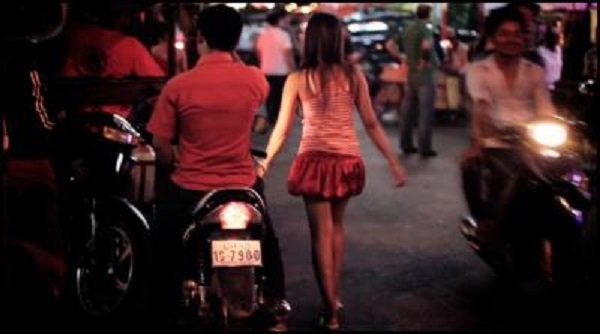 new zealand-Prostitution legal
new zealand-Prostitution legal
The PRA established the Prostitution Law Review Committee, tasked with monitoring and evaluating the law’s effect on the well-being of sex workers. According to NZPC estimates, there are approximately 8,000 sex workers in New Zealand at any given time. This progressive step aims to safeguard sex workers’ rights and create a safer, more regulated environment for the industry.
5. Australia: Varying Legalities Across States
How do prostitution laws differ across Australian states and territories?
The legal status of prostitution varies across Australia’s states and territories, with historical laws primarily governed at the state level, resulting in diverse legal approaches. Decriminalization exists in some areas, while others deem it illegal. The same variance applies to brothel ownership. For instance, South Australia’s model focuses on reducing harm and treating sex work as a legitimate form of labor. According to a 2023 report by IBISWorld, the Brothel Keeping and Sex Worker Services industry experienced a 19.5% increase in market size, highlighting the economic impact of legal prostitution.
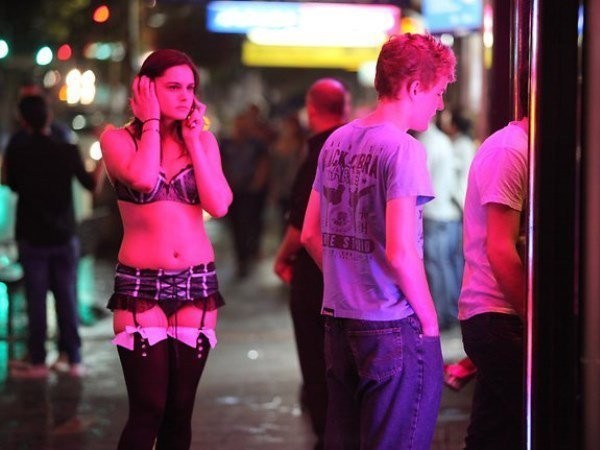 australia-Prostitution legal
australia-Prostitution legal
This fragmented legal landscape presents challenges for both sex workers and clients, making it essential to understand the specific laws of each region.
6. Austria: Regulation and Oversight in the Sex Industry
What regulations are in place for prostitution in Austria, and how are they enforced?
Austria decriminalized prostitution in 1975, acknowledging sex work as a legitimate form of employment. Prostitutes must register, undergo regular health examinations, be at least 18 years old, and pay taxes. Government oversight ensures adherence to standards and the well-being of sex workers. According to the Austrian Federal Ministry of Social Affairs, Health, Care and Consumer Protection, these measures help maintain standards and protect sex workers.
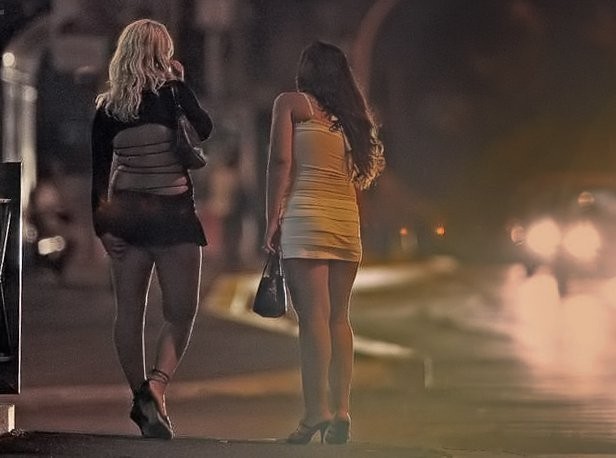 austria-Prostitution legal
austria-Prostitution legal
Despite these regulations, issues such as smuggling and forced prostitution persist, posing ongoing challenges. In 2022, approximately 5,279 registered prostitutes were in Austria, as reported by the Austrian Central Statistical Office.
7. Bangladesh: Legal Prostitution with Restrictions
What are the legal limitations and social stigmas surrounding prostitution in Bangladesh?
In Bangladesh, male prostitution is illegal, but other forms are legal, albeit with restrictions. Provisions in the Penal Code criminalize soliciting, operating brothels, and living off prostitution earnings. The social stigma associated with sex work poses challenges for individuals in the industry. According to a 2019 report by the United Nations Development Programme (UNDP), these stigmas exacerbate vulnerabilities and hinder access to essential services.
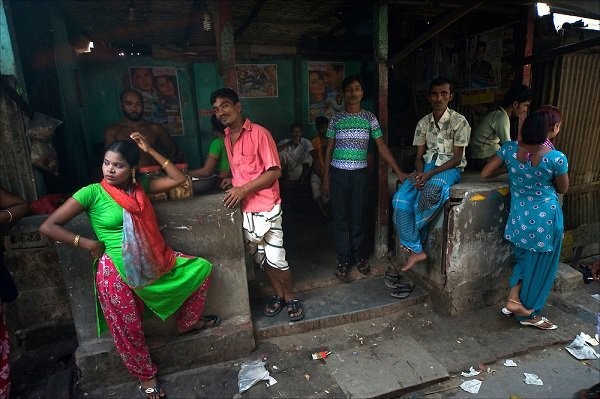 bangladesh-Prostitution legal
bangladesh-Prostitution legal
There are approximately 20 brothel villages in the country, with Daulatdia being the largest, housing around 1,300 sex workers and recognized as one of the world’s largest brothels.
8. Belgium: Decriminalization Efforts and Human Trafficking Concerns
How has Belgium addressed stigma and violence in prostitution, and what challenges remain?
Belgium decriminalized prostitution in 1995, recognizing sex work as legitimate employment. The country aims to eliminate stigma, violence, and fear linked to prostitution by legalizing it and operating state-of-the-art brothels with fingerprint technology and keycards. According to a 2018 report by the Belgian Federal Police, the regulatory framework includes routine health checks to safeguard sex workers’ well-being and prevent the transmission of STDs.
 belgium-Prostitution legal
belgium-Prostitution legal
Despite these efforts, human trafficking remains a significant concern. In 2022, Belgium’s Federal Police reported 303 sexual trafficking cases, highlighting the ongoing need for vigilance and preventative measures.
9. Brazil: Navigating Legal Gray Areas
What are the legal nuances of prostitution in Brazil, and how does it affect sex workers?
In Brazil, engaging in sex work is generally considered a private activity between consenting adults. Federal laws neither criminalize nor fully decriminalize prostitution. However, activities such as pimping are illegal. According to a 2021 survey by the Minas Gerais Foundation for Education and Culture (Fumec), about 1.5 million people are involved in prostitution.
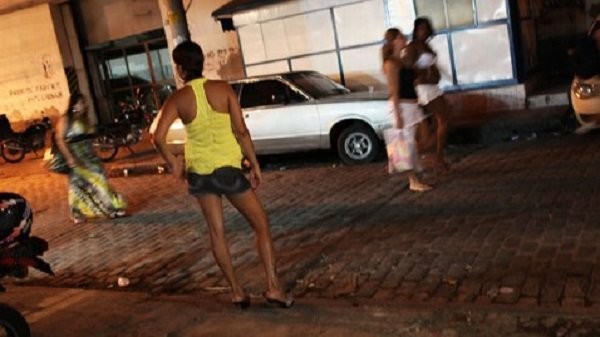 brazil-Prostitution legal
brazil-Prostitution legal
While prostitution itself is not illegal, the lack of clear legal frameworks can leave sex workers vulnerable to exploitation and marginalization.
10. Canada: A Complex Legal Framework
What legal amendments have been made in Canada regarding prostitution, and what challenges persist?
In the landmark case Bedford v. Canada, the Supreme Court of Canada amended the Criminal Code in 2014, focusing on decriminalizing certain aspects of sex work to address constitutional concerns. Selling sexual services is decriminalized, allowing consenting adults to engage in sex work. However, purchasing sexual services and operating a brothel remain criminalized.
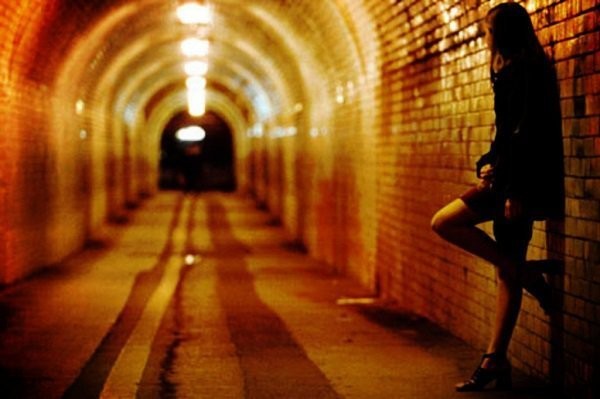 canada-Prostitution legal
canada-Prostitution legal
A 2020 report by the Canadian Centre for Justice Statistics indicates that this legal structure creates a precarious situation, as it can push sex work underground and increase the risk of harm to sex workers. Public opinion on prostitution is divided, with younger people being the most critical.
11. Colombia: Legal Sex Industry with Public Order Regulations
How does Colombia regulate its legal sex industry while addressing issues like sex trafficking?
It is legal to work in the sex industry in Colombia, but pimping is not. Prostitution is prevalent in cities like Cartagena and Barranquilla. While legal, public order regulations restrict soliciting in certain public spaces.
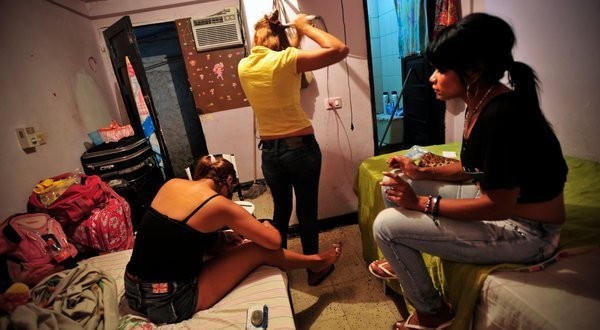 colombia-Prostitution legal
colombia-Prostitution legal
Colombia faces challenges related to sex trafficking and is actively combating human trafficking and supporting victims. According to UNAIDS estimates, there are approximately 7,218 prostitutes in the country.
12. Denmark: Government Support and Trafficking Issues
What support does the Danish government provide to sex workers, and what challenges remain?
Prostitution is legal in Denmark, and the government even assists individuals with disabilities in accessing sexual services by covering additional costs. Regulations govern specific aspects of the industry, including licensing for sex workers and establishments like brothels.
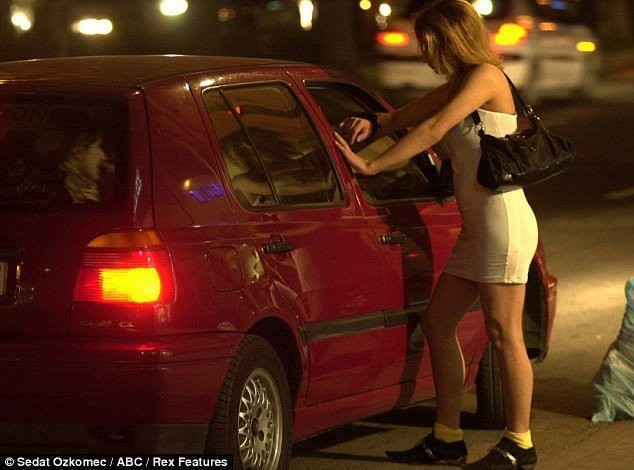 denmark-Prostitution legal
denmark-Prostitution legal
However, trafficking remains a significant issue. From 2009 to 2020, 717 out of 968 identified trafficked individuals in Denmark were victims of trafficking into prostitution.
13. Ecuador: Comprehensive Legalization and Regulation
How does Ecuador regulate prostitution, and what are the primary challenges?
Ecuador decriminalized adult consensual sex work in 2011. Quito was the first city in Ecuador to regulate prostitution in 1921, requiring prostitutes to undergo weekly STI testing. All aspects of sex work are legal, including selling services, operating brothels, and acting as a pimp, without legal repercussions.
 ecuador-Prostitution legal
ecuador-Prostitution legal
Authorities issue permits and licenses to individuals and establishments involved in sex work, though forced prostitution remains a problem. According to UNAIDS, there are approximately 35,000 prostitutes in the country.
14. France: Criminalizing the Purchase of Sex
How does France’s approach of criminalizing the purchase of sex affect sex workers and clients?
Prostitution is legal in France, but soliciting in public is outlawed, and pimping is illegal. Brothels were outlawed in 1946. In 2016, France adopted a new legal framework that criminalizes the purchase of sex while decriminalizing the sale of sex.
 france-Prostitution legal
france-Prostitution legal
Certain aspects of sex work are regulated, including restrictions on where it can take place, such as forbidding street solicitation in some areas. In 2023, it was estimated that over 30,000 people were involved in prostitution in France. This approach aims to reduce demand and protect sex workers.
15. Germany: Decriminalization and Regulation for Safety
How does Germany balance decriminalization with regulation to protect sex workers?
Germany decriminalized prostitution in 2002 and implemented a regulatory framework to govern the sex industry, including health and safety standards, taxation, and licensing for sex workers and establishments.
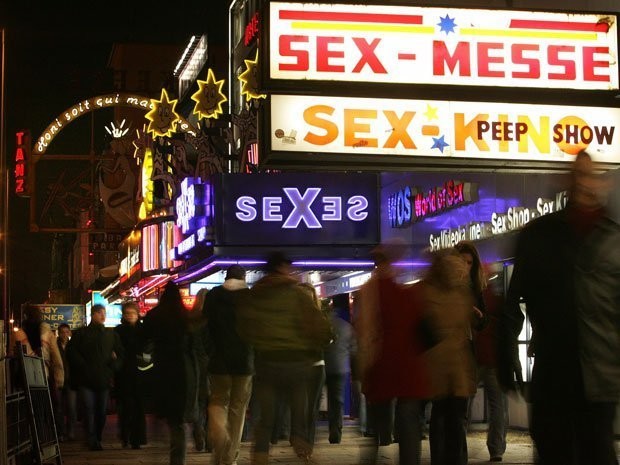 germany-Prostitution legal
germany-Prostitution legal
According to the Federal Statistics Agency, the number of registered sex workers in Germany at the end of 2022 was 28,280, a 19.1% increase compared to the previous year. This framework aims to provide a safe and regulated environment for sex workers.
16. Greece: Legalization and Health Standards
How does Greece ensure health and safety in the sex industry through legalization and regulations?
Prostitution was decriminalized in Greece in 2016, adopting a model similar to Germany’s. Sex workers have equal rights and undergo frequent health checkups. They may be required to register with authorities, and establishments must comply with health and safety standards.
 greece-Prostitution legal
greece-Prostitution legal
It is estimated that fewer than 1,000 women are legally employed as prostitutes, while approximately 20,000 women are engaged in illegal prostitution, highlighting the need for better enforcement and regulation.
17. Indonesia: Legal Ambiguity and Vulnerability
What are the risks associated with the legal ambiguity of prostitution in Indonesia?
Indonesia lacks specific laws against sex work, which can be interpreted as de facto legality. This absence of clear laws can be dangerous for forced workers and minors.
 indonesia-Prostitution legal
indonesia-Prostitution legal
According to estimates, 40,000 to 70,000 Indonesian children engage in prostitution within the country, indicating a severe child exploitation issue.
18. Netherlands: A Liberal Approach to Regulation
How does the Netherlands’ liberal approach to prostitution affect sex tourism and regulation?
The Netherlands decriminalized and regulated prostitution in 2000, known for its red-window sex workers and liberal policies. The legal age for engaging in sex work is 21 years.
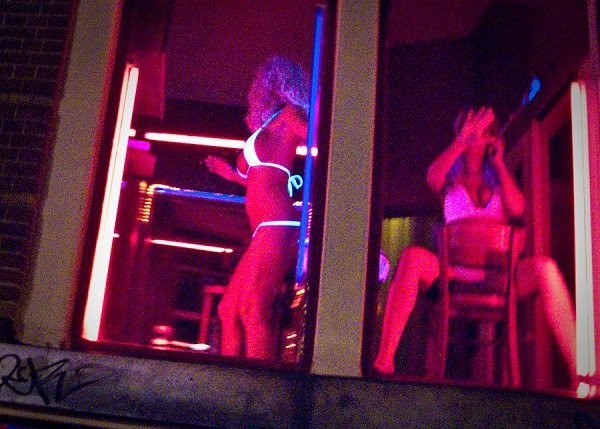 netherlands-Prostitution legal
netherlands-Prostitution legal
Amsterdam is known for sex tourism, attracting visitors worldwide to legal and regulated sex work establishments. Approximately 25,000 prostitutes work in the Netherlands, with about 1,000 working daily in Amsterdam’s Red Light District.
19. Switzerland: Decriminalization and Tourism
How has decriminalization in Switzerland contributed to sex tourism in specific areas?
Prostitution has been decriminalized and regulated in Switzerland for several decades. Both selling and buying sex are legal activities for consenting adults.
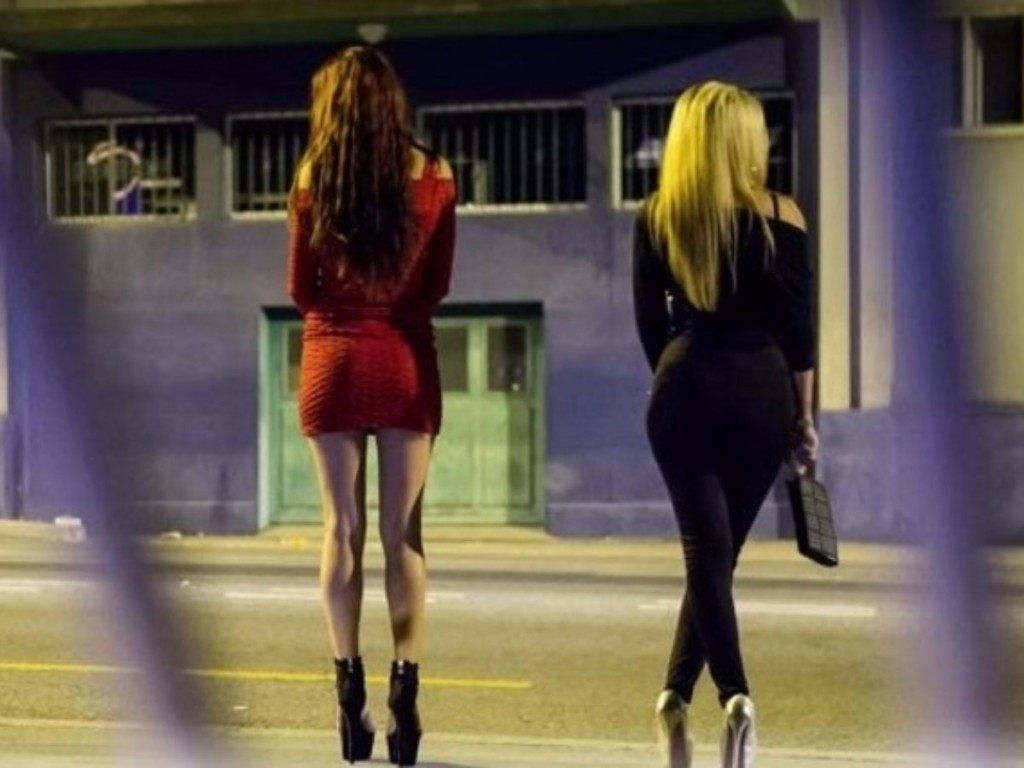 switzerland-Prostitution legal
switzerland-Prostitution legal
Regulated sex work has attracted some visitors, contributing to sex tourism in certain areas. Zurich has an estimated 5,000 street sex workers, and UNAIDS estimates there are 20,000 prostitutes in the country.
20. India: Complex Legalities and Enforcement Challenges
What are the legal complexities and enforcement challenges surrounding prostitution in India?
India is one of the Asian countries where prostitution is legal, but soliciting and public prostitution are illegal. Owning a brothel is also against the law, though these laws are rarely enforced in areas like GB Road and Kamathipura.
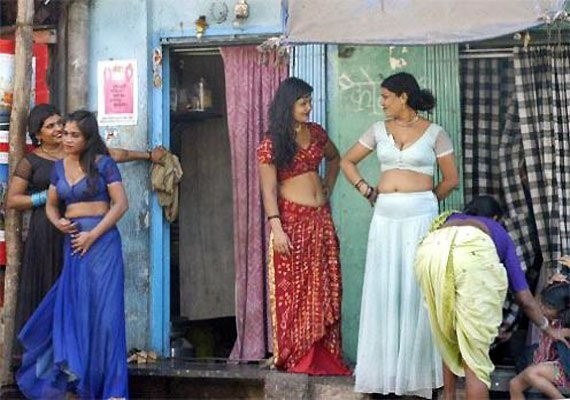 india-Prostitution legal
india-Prostitution legal
It is illegal to buy, sell, or import minors for prostitution. According to UNAIDS estimates from 2016, there were 657,829 prostitutes in the country, while other unofficial estimates put the number at roughly 3 million.
21. United States: State-by-State Variations
How do prostitution laws vary across different states in the United States?
Prostitution laws in the United States vary widely by region, with some states adopting stricter criminalization measures and others pursuing regulation or decriminalization. Nevada is an exception, allowing regulated and legal prostitution in licensed brothels in certain counties.
 united states-Prostitution legal
united states-Prostitution legal
A 2012 report indicated that there were an estimated 1 million prostitutes in the U.S., highlighting the scale of the industry despite its legal status.
22. Mexico: Decriminalization Efforts
What are the main initiatives in Mexico regarding decriminalizing sex work, and where are these laws implemented?
The legal status of prostitution in Mexico varies among the states. Mexico City decriminalized sex work in 2010, allowing adults to engage in sex work without criminal penalties.
 mexico-Prostitution legal
mexico-Prostitution legal
Mexico has also implemented laws to address human trafficking, including sex trafficking. UNAIDS estimated the number of prostitutes in the country at 236,930 in 2016.
23. Czech Republic: Regulation and Enforcement
How does the Czech Republic manage sex work after decriminalization?
The Czech Republic decriminalized prostitution in 1990, requiring sex workers to register and enforcing health and safety standards. The legal age for engaging in sex work is 18 years.
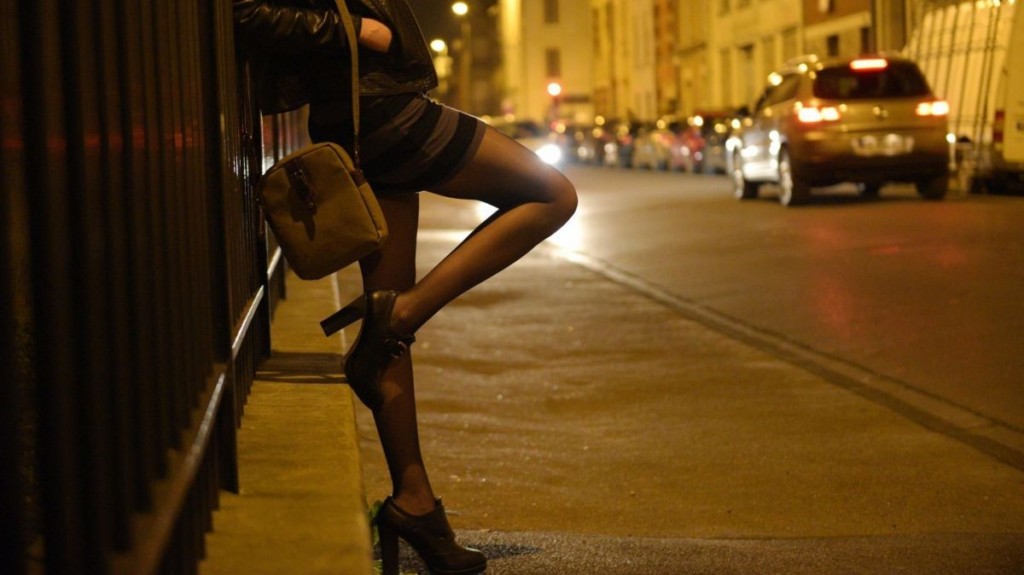 czech republic-Prostitution legal
czech republic-Prostitution legal
Estimates suggest that 12,000 to 13,000 women worked as sex workers in the Czech Republic in 2019.
24. Luxembourg: Immigrant Sex Workers
What are the challenges faced by immigrant sex workers in Luxembourg?
Luxembourg decriminalized prostitution and implemented a regulatory framework, where both selling and buying sex are legal for consenting adults. The legal age for engaging in sex work is 18 years.
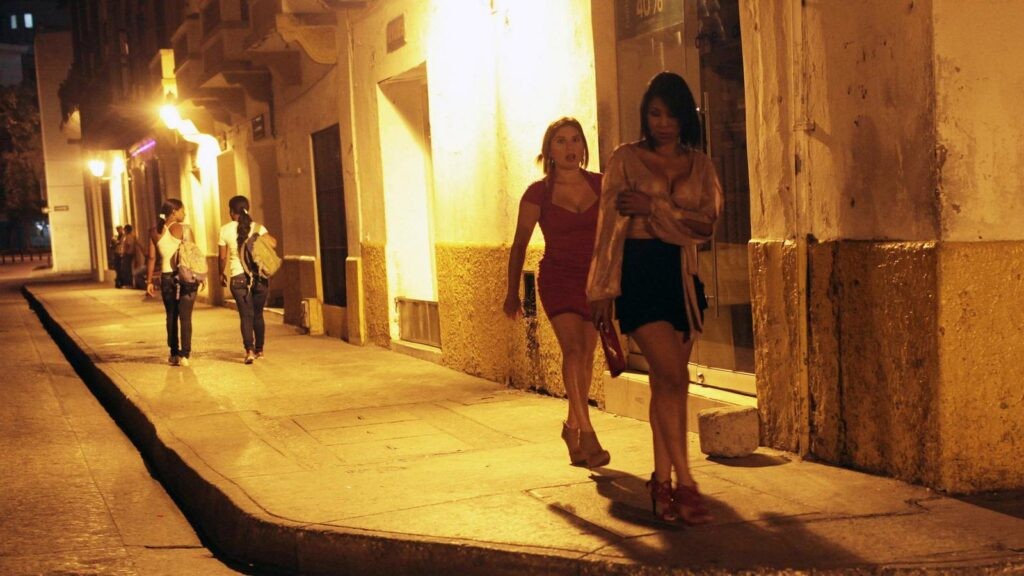 luxembourg-Prostitution legal
luxembourg-Prostitution legal
There are an estimated 300 prostitutes in Luxembourg, most of whom are immigrants.
25. Spain: Challenges with Regulating Brothels
What challenges does Spain face in regulating brothels despite decriminalization efforts?
Spain decriminalized prostitution in 1995, attracting tourists to cities like Barcelona and Madrid. Both selling and buying sex are legal.
 spain-Prostitution legal
spain-Prostitution legal
Estimates suggest there are around 350,000 women in prostitution in Spain, with 80% being foreigners without legal papers.
26. Mozambique: Law Enforcement and Public Modesty
How do law enforcement practices affect sex workers in Mozambique, despite the legality of prostitution?
Prostitution is legal and widely accepted in Mozambique. However, police often target sex workers due to loopholes in the law.
 mozambique-Prostitution legal
mozambique-Prostitution legal
Encouraging or facilitating prostitution is criminalized, and sex workers and clients engaging in public sex can be arrested for outraging public modesty. There are an estimated 13,554 prostitutes in the country.
27. Venezuela: Regulated Sex Industry and Human Trafficking Issues
What are the main challenges faced in Venezuela regarding the regulation of the sex industry and human trafficking prevention?
Prostitution is legal in Venezuela, with regulations to govern the sex industry and health and safety standards for brothels.
 venezuela-Prostitution legal
venezuela-Prostitution legal
Major issues like human trafficking persist. Victims are recruited through false job offers and forced into prostitution or labor exploitation.
28. Sierra Leone: Law Enforcement and Human Trafficking Concerns
What is the interplay between legal prostitution and human trafficking in Sierra Leone?
Prostitution is legal and commonplace in Sierra Leone, but third-party involvement is prohibited. The country is also a source and destination for men, women, and children subjected to sex trafficking.
 sierra leone-Prostitution legal
sierra leone-Prostitution legal
There are an estimated 240,000 prostitutes in the country.
29. Bolivia: Regulated Sex Work and Legal Protections
How does Bolivia balance decriminalization with harm reduction?
Bolivia has decriminalized and regulated prostitution, acknowledging sex work as a legitimate occupation and aiming to provide certain protections for sex workers. The legal age for engaging is 18 years.
 bolivia-Prostitution legal
bolivia-Prostitution legal
In 2016, there were an estimated 30,523 prostitutes in Bolivia.
30. Peru: Informal Sector and Human Trafficking
What impact does the informal sector have on the legal status of prostitution in Peru?
Peru has decriminalized adult consensual sex work. Most prostitutes work in the informal sector, lacking health protection, while police officers tolerate unlicensed brothels.
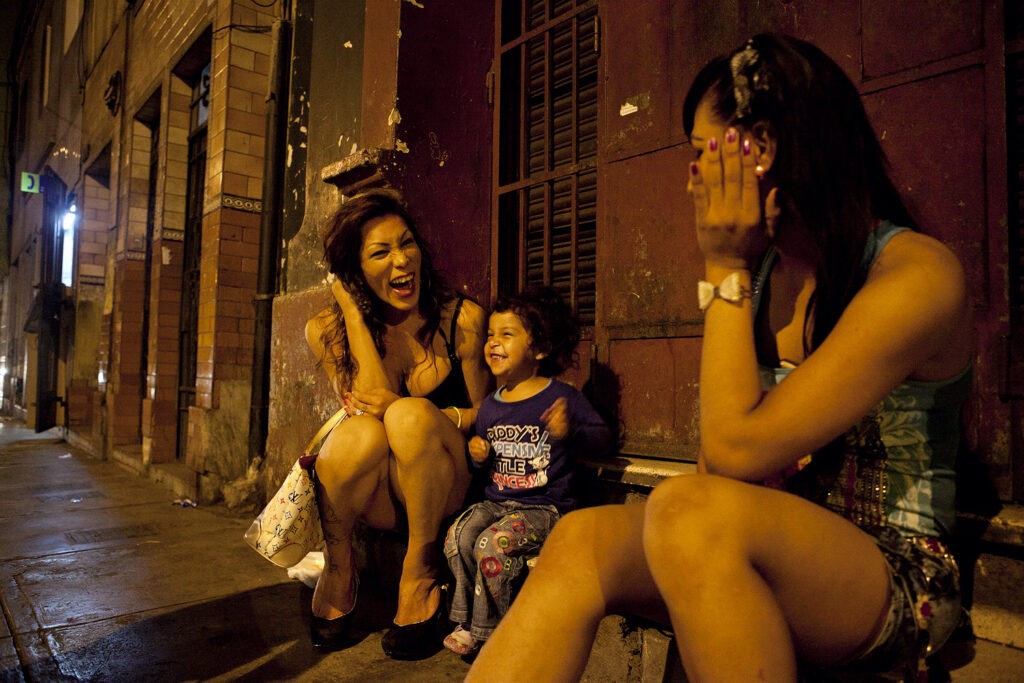 peru-Prostitution legal
peru-Prostitution legal
Peru is a source, transit point, and destination for trafficked persons, with most human trafficking occurring within the country. There are approximately 67,000 prostitutes.
31. Lebanon: Legal Ambiguity and Public Order
How does Lebanon navigate prostitution without clear-cut laws?
Lebanon lacks clear-cut laws specifically addressing prostitution, relying on existing legal provisions related to morality and public order.
 lebanon-Prostitution legal
lebanon-Prostitution legal
Police can check whether prostitutes are registered and have attended a clinic within the previous 20 days. In 2016, there were an estimated 30,523 prostitutes.
32. Panama: Street Prostitution Concerns
How do regulations address street prostitution in Panama?
Prostitution is legal in Panama, with regulations to govern the sex industry. Street prostitution occurs on Avenida Ricardo Arias, Central Avenue, and Avenida Perú.
 panama-Prostitution legal
panama-Prostitution legal
Unregistered prostitutes can access health services at clinics. In 2008, there were 2,650 registered sex workers, but no accurate total number of people practicing prostitution in the country.
33. Uruguay: Legalization with Health Requirements
What legal requirements are in place for sex workers in Uruguay, and what is the impact?
Uruguay has legalized and regulated prostitution, with both selling and buying sex being legal. This was legislated in 2002 through the sex work law.
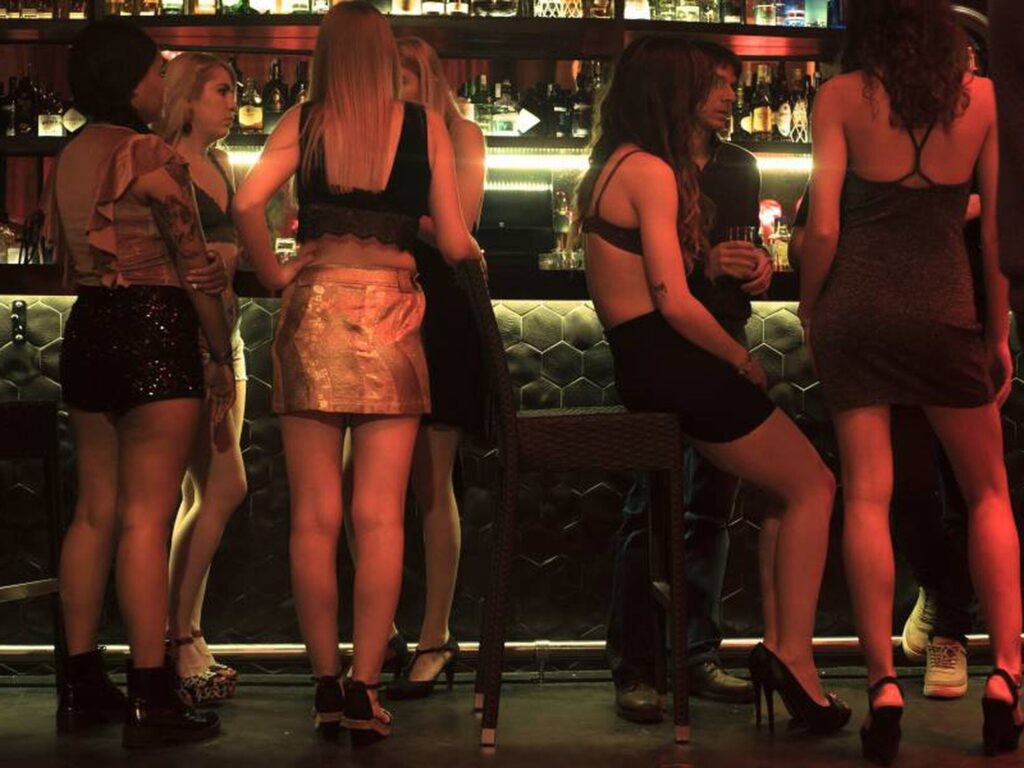 uruguay-Prostitution legal
uruguay-Prostitution legal
Article 31 of the law provides penalties for selling sex without a health card, and their names are placed on the register. There are an estimated 8,195 prostitutes.
34. Illegal Countries
Which countries have laws against prostitution and penalties?
| Country | Legality | Notes |
|---|---|---|
| China | Illegal | Frequent legal exception. |
| Pakistan | Illegal | Still common despite steep penalties. |
| Russia | Illegal | Punishment for engagement is a fine from 1500 up to 2000 rubles. |
| Philippines | Illegal | Illegal but tolerated. |
| Egypt | Illegal | Still exists, but not prevalent. |
| Vietnam | Illegal | Serious Crime. |
| Iran | Illegal | Repeat offenders may be executed. |
| Tanzania | Illegal | Still widespread. |
| France | Illegal | Selling is legal, but buying, organizing, and solicitation are illegal. Loopholes exist. |
| South Africa | Illegal | Still widespread. |
| Myanmar | Illegal | Still widespread. |
| South Korea | Illegal | Illegal but tolerated. |
| Uganda | Illegal | Still widespread. |
| Iraq | Illegal | Buyer, seller, & organizer all liable. Steep penalties |
| Afghanistan | Illegal | Sex outside of marriage is punishable by death |
| Canada | Illegal | Selling is legal, but buying, organizing, and solicitation are illegal. |
| Morocco | Illegal | Still widespread. |
| Ukraine | Illegal | Illegal but tolerated. |
| Angola | Illegal | Lax enforcement. |
| Saudia Arabia | Illegal | Steep penalties. |
| Uzbekistan | Illegal | Lax enforcement. |
| Yemen | Illegal | Still widespread. |
| Ghana | Illegal | Still widespread. |
| Nepal |



